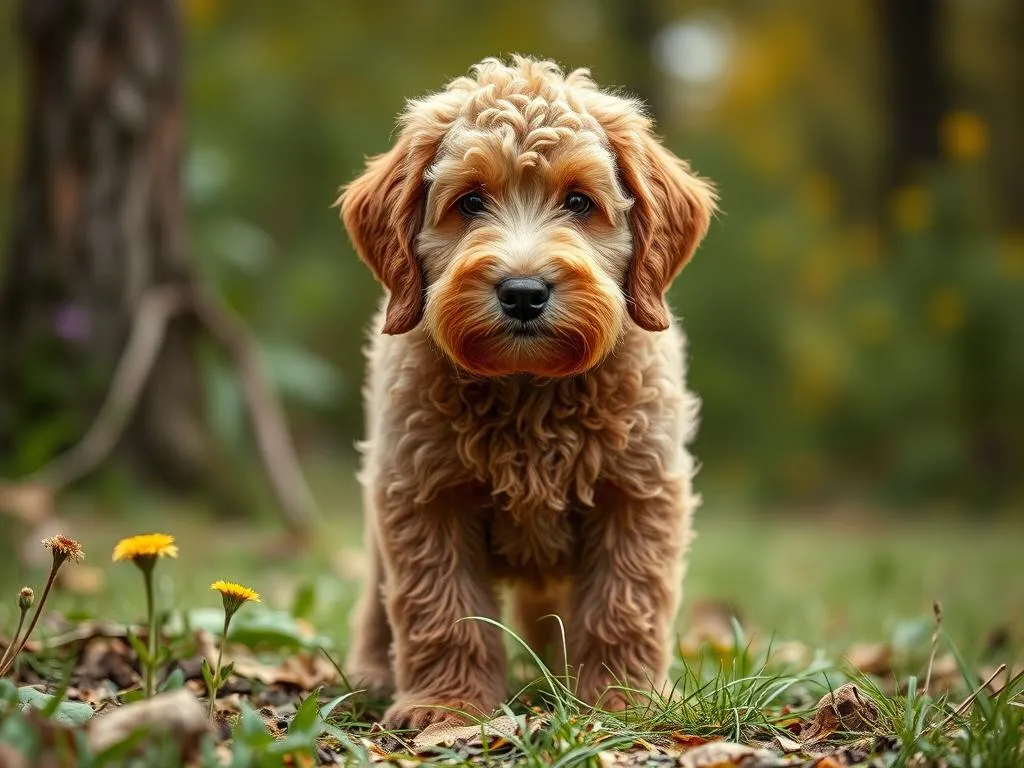
Labradoodles, a hybrid breed resulting from the cross-breeding of the Labrador Retriever and the Poodle, are often celebrated for their friendly demeanor, intelligence, and hypoallergenic coats. As more people consider these dogs as potential hunting companions, it’s essential to explore whether a Labradoodle is a good hunting dog. Understanding their capabilities, character traits, and limitations can help prospective hunters make informed decisions.
Understanding the Labradoodle
Origin and History
The Labradoodle was first developed in Australia in the late 1980s, primarily as a guide dog for individuals with allergies. Breeders aimed to combine the friendly and versatile nature of the Labrador Retriever with the intelligence and low-shedding coat of the Poodle. This cross-breeding resulted in a breed that offers the best of both worlds—affectionate companionship and reduced allergens.
Physical Characteristics
Labradoodles come in a range of sizes, typically categorized into three types: standard, medium, and miniature. The size can vary significantly based on the size of the parental Poodle. Generally, Labradoodles weigh between 15 to 65 pounds and stand 14 to 24 inches tall at the shoulder.
Their coat types can vary as well, with options including:
- Wool Coat: Curly and dense, resembling a Poodle’s coat.
- Fleece Coat: Soft and wavy, often less prone to matting.
- Hair Coat: Straight and similar to a Labrador’s fur.
Coat colors can range from cream, gold, chocolate, black, and even merle patterns. Regular grooming is essential to maintain their coat and minimize shedding.
Temperament and Behavior
Labradoodles are known for their friendly and social temperament. They are often described as:
- Intelligent: Known for their quick learning abilities, Labradoodles excel in obedience training.
- Affectionate: They bond closely with their families and thrive on human interaction.
- Playful: Labradoodles enjoy playtime and are generally good with children and other pets.
Their intelligence makes them highly trainable, and they can adapt well to various environments, making them excellent companions in both urban and rural settings.
Hunting Dog Characteristics
Qualities of a Good Hunting Dog
Successful hunting dogs share several key traits:
- Scenting Ability: Essential for tracking game.
- Stamina: Necessary for long hours in the field.
- Trainability: A strong willingness to learn commands and perform tasks.
- Bond with Owner: A good hunting dog should have a strong connection with its handler, ensuring effective teamwork.
Traditional Hunting Breeds
When considering traditional hunting dogs, breeds like Labrador Retrievers, Spaniels, and German Shorthaired Pointers often come to mind. These breeds have been specifically developed and refined over generations for hunting tasks, including retrieving game from land and water.
In comparison, while Labradoodles may possess some of these qualities, they have not been bred specifically for hunting. This difference can impact their performance in the field.
Hunting Skills of Labradoodles
Natural Instincts
Labradoodles do have some innate hunting instincts, primarily inherited from their Labrador and Poodle lineage. They often display a strong desire to retrieve, making them enthusiastic participants in hunting scenarios. However, their instincts may not be as pronounced as those found in traditional hunting breeds.
Trainability for Hunting Tasks
One of the advantages of Labradoodles is their high trainability. Utilizing positive reinforcement techniques can yield successful results in training them for hunting tasks. Many Labradoodle owners have reported success in training their dogs to retrieve waterfowl and upland game, showcasing their adaptability.
Success stories abound, with some Labradoodles excelling in hunting roles. Their intelligence and eagerness to please often make them quick learners, allowing them to grasp commands effectively.
Limitations in Hunting
Despite their potential, Labradoodles may face challenges in hunting scenarios. Some limitations include:
- Scenting Ability: While they can track scents, they may not have the same level of proficiency as specialized hunting breeds.
- Drive: Traditional hunting breeds often exhibit a stronger drive to hunt, which can be crucial in various hunting environments.
- Physical Stamina: Depending on the individual dog, some Labradoodles may not have the endurance required for extensive hunting trips.
These factors can influence their overall effectiveness as hunting companions.
Practical Considerations for Hunting with a Labradoodle
Assessing Your Labradoodle’s Suitability for Hunting
Before engaging in hunting activities, consider your Labradoodle’s age, health, and temperament. A younger, energetic dog may be more suited for hunting than an older dog. Additionally, health screenings can determine if your dog is physically capable of handling hunting tasks.
Training and Preparation
Essential training commands and skills for hunting include:
- Recall: Ensuring your dog returns to you on command.
- Stay: Teaching your dog to remain in place until given another command.
- Fetch: Practicing retrieving items from the ground or water.
Consider enrolling in training programs that focus on hunting skills. These programs can provide valuable resources and guidance to enhance your Labradoodle’s capabilities.
Equipment and Gear
When preparing for a hunting trip with your Labradoodle, consider the following gear:
- Comfortable Harness: A good harness can provide better control and ensure your dog is secure.
- Reflective Gear: Visibility is crucial in the field, especially during low-light conditions.
- Safety Equipment: Ensure your dog is protected from potential hazards, such as sharp objects or rough terrain.
Taking safety measures is essential for both your dog and yourself while hunting.
Alternatives to Labradoodles for Hunting
Other Breeds to Consider
If you’re searching for a primarily hunting dog, several breeds are worth considering:
- Labrador Retriever: Highly regarded for their retrieving skills and friendly nature.
- German Shorthaired Pointer: Renowned for their versatility in hunting various game.
- Golden Retriever: Similar to Labradors, they are excellent family dogs and adept at hunting.
Each breed has its pros and cons. For example, while Labrador Retrievers are easy to train, they require significant exercise. In contrast, German Shorthaired Pointers are energetic and tireless but may need more specialized training.
Why Choose a Labradoodle Anyway?
Despite being less traditional, Labradoodles offer unique benefits:
- Hypoallergenic Coats: Ideal for families with allergies.
- Versatility: They can excel in various roles, from family companion to therapy dog.
- Affectionate Companions: Labradoodles are known for their loving and gentle nature.
For families who prioritize companionship alongside potential hunting, Labradoodles can be an excellent choice.
Conclusion
In summary, while a Labradoodle is a good hunting dog for some individuals, they may not match the specialized capabilities of traditional hunting breeds. Their intelligence, trainability, and friendly nature can make them suitable companions for hunting enthusiasts, provided that the owner is committed to training and preparation. Ultimately, evaluating your specific needs and lifestyle is crucial when selecting a hunting companion. Labradoodles can certainly bring joy and companionship, whether in the field or at home.
FAQs
Is a Labradoodle suitable for first-time hunters?
Yes, Labradoodles can be an excellent choice for first-time hunters due to their trainability and friendly nature. However, they still require proper training and socialization.
How does a Labradoodle compare to a purebred hunting dog?
While Labradoodles have some hunting instincts and are trainable, they may lack the specialized skills and drive of purebred hunting dogs.
What types of game can a Labradoodle hunt?
Labradoodles can be trained to hunt small game such as birds and rabbits, but they may not be as effective for larger game compared to traditional hunting breeds.
Can Labradoodles participate in hunting trials or competitions?
Yes, with the right training, Labradoodles can participate in hunting trials and competitions, although they may face stiff competition from more traditional breeds.









